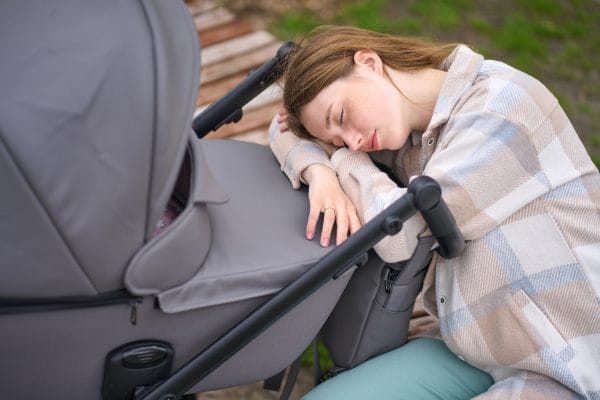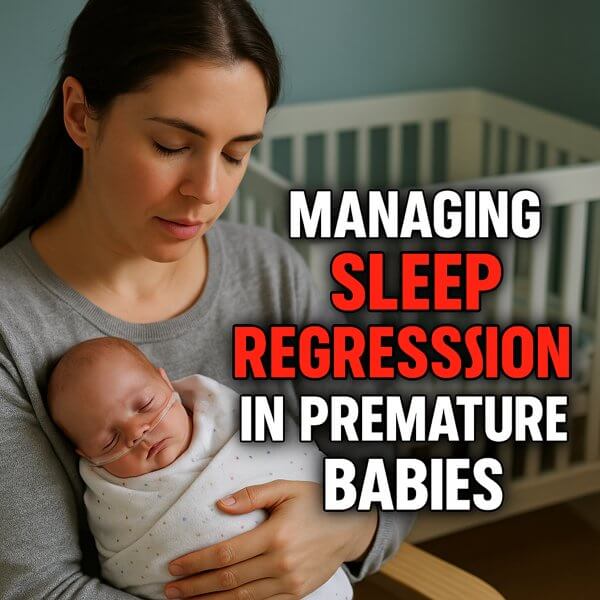Nicknames for Twin Babies: Double the Love
Welcome to the delightful journey of parenting twins! One of the first and most exciting challenges you’ll face is choosing the perfect names for your duo. Beyond selecting their formal names, you might also want to think about nicknames. These endearing terms of affection are not just cute; they can also reflect your twins’ unique identities and the special bond they share.
In this comprehensive article, we will explore the universe of nicknames for twin babies, offering a wealth of ideas to inspire you.

Understanding the Significance of Twin Nicknames
![]()
Before we dive into the sea of potential nicknames, let’s consider why nicknames are particularly significant for twins. Nicknames can serve as a form of individual expression, allowing each twin to have a unique identity separate from their shared twinship. They also can be a source of comfort and intimacy, creating a special connection between siblings. Moreover, nicknames can capture personality traits, physical attributes, or the dynamic between the twins in a way that formal names might not.
Case Studies: Real-Life Twin Nicknames
Let’s look at some case studies that show how parents have selected nicknames for their twins:
- The ‘H’ Twins: Heather and Holly’s parents chose botanical names that start with the same letter, emphasizing their togetherness while celebrating their individuality.
- The Opposite Twins: Named Fire and Ice by their parents, these twins have opposite temperaments that are perfectly captured by their elemental nicknames.
Statistics and Trends in Twin Nicknaming
According to a study by the Twins and Multiple Births Association, many parents of twins choose names that start with the same letter or sound similar. However, an emerging trend is to select entirely distinct names that do not rhyme or match to emphasize each twin’s individuality. Nicknames often follow this same pattern, with parents opting for either coordinated or distinct nicknames depending on their preference for similarity or uniqueness.
Classic Pairings and Complementary Nicknames
![]()
Some parents prefer timeless and coordinated nicknames that have been traditionally associated with twins. Here are a few classic examples:
- Peas and Carrots: This pair is great for twins who are inseparable and complement each other perfectly.
- Salt and Pepper: Ideal for twins who might have opposite features or personalities, yet together, they bring the perfect balance.
- Peanut Butter and Jelly: For the duo that sticks together like the classic sandwich spread, these nicknames are both sweet and enduring.
Themed Twin Nicknames
![]()
Some parents enjoy coming up with nicknames for their twins that follow a specific theme. This can range from celestial bodies to famous duos in literature or pop culture. Here are some themed nickname ideas:
- Celestial Names: Luna and Sol, or Star and Sky, for twins that light up your life.
- Mythological Pairs: Zeus and Hera, or Apollo and Artemis, for families who love ancient stories and legends.
- Historical Duos: Romeo and Juliet, or Bonnie and Clyde, for twins whose names will always be linked together.
Creative and Unique Nicknames
![]()
If you’re looking for something outside the box, here are some creative ideas that can help your twins’ nicknames stand out:
- Color Inspired: Azure and Indigo, or Scarlet and Violet, can be beautiful and distinctive names for twins.
- Nature Themed: Willow and Birch, or Rose and Daisy, for nature-loving families.
- Animal Nicknames: Cub and Kit, or Leo and Lynx, for animal-inspired monikers.
Personalizing Nicknames Based on Individual Traits
![]()
Nicknames can also be inspired by each twin’s unique characteristics or the experiences you’ve had with them. Here are some factors to consider when crafting personalized nicknames:
- Personality Traits: If one twin is energetic and the other is calm, you might choose Spark and Breeze as their nicknames.
- Physical Features: For twins with distinctly different looks, you could opt for nicknames like Sunny for a blonde twin and Raven for one with dark hair.
- Birth Order: Some parents use nicknames like Uno and Dos or Alpha and Beta to signify the order in which their twins arrived.
Funny Nicknames for Twins
![]()
Coming up with funny nicknames for twins can be a delightful way to celebrate their unique bond and individual personalities. Here are some playful and humorous ideas:
- 1. Copy and Paste – This pair of nicknames is perfect for identical twins who look so alike it’s as if one was just a copy of the other.
- 2. Thing 1 and Thing 2 – Inspired by the mischievous characters from Dr. Seuss’s “The Cat in the Hat,” these names are great for twins who are always up to some sort of fun trouble.
- 3. Peanut Butter and Jelly – For the inseparable duo that complements each other as perfectly as this classic sandwich combination.
- 4. Salt and Pepper – Ideal for twins who might have opposite personalities or for those who just spice up life in different ways.
- 5. Batman and Robin – For the dynamic duo that’s always ready for adventure and saving the day, whether in play or in their everyday antics.
- 6. Hocus and Pocus – For twins with a magical charm about them or who seem to be able to communicate without words, much like telepathic magicians.
- 7. Mario and Luigi – Named after the famous video game brothers, these nicknames are great for twins who are always on some kind of quest or adventure together.
- 8. Tweedledee and Tweedledum – These names come from the comical duo in Lewis Carroll’s “Alice in Wonderland” and are fitting for twins who are often seen in a whimsical light.
- 9. Rumble and Tumble – For the energetic set of twins who are always roughhousing and tumbling around.
- 10. Yin and Yang – These nicknames work well for twins who have opposite traits yet balance each other out perfectly.
- 11. Bubble and Squeak – Borrowed from the name of a traditional English dish, this pair of nicknames could suit twins known for being chatty and cheerful.
- 12. Thunder and Lightning – For the twins who bring a storm of energy wherever they go, with personalities that are both electrifying and impactful.
- 13. Alpha and Beta – A nod to the first two letters of the Greek alphabet, these names might suit the older and younger twin, especially if their personalities reflect leadership and support roles.
- 14. Mischief and Mayhem – Perfect for the twins who are always cooking up some trouble and whose playful antics keep everyone on their toes.
- 15. Bric and Brac – This pair of nicknames is great for twins who are as eclectic and complementary as a collection of knick-knacks.
- 16. Sonic and Tails – Named after the characters from the Sonic the Hedgehog series, these nicknames are perfect for twins who are fast-moving and inseparable friends.
Remember, the best twin nicknames will reflect their personalities, the bond they share, and perhaps a bit of their behavior or appearance. It’s all about capturing their essence in a fun and affectionate way.
Top 50 Nicknames for Twin Babies
![]()
Here are 50 nickname ideas for twin babies, some classic and some more unique:
- 1. Peanut & Butter
- 2. Salt & Pepper
- 3. Sugar & Spice
- 4. Thunder & Lightning
- 5. Bubbles & Squeak
- 6. Chip & Dale
- 7. Mickey & Minnie
- 8. Bonnie & Clyde
- 9. Yin & Yang
- 10. Sunny & Moony
- 11. Rose & Daisy
- 12. Coco & Chanel
- 13. Tickle & Pickle
- 14. Hugs & Kisses
- 15. Pebbles & Bam-Bam
- 16. Starsky & Hutch
- 17. Rhythm & Blues
- 18. Tango & Cash
- 19. Alpha & Beta
- 20. Zig & Zag
- 21. Lilo & Stitch
- 22. Mario & Luigi
- 23. Posh & Becks
- 24. Batman & Robin
- 25. Ken & Barbie
- 26. Ben & Jerry
- 27. Fish & Chips
- 28. Bert & Ernie
- 29. Hansel & Gretel
- 30. Buzz & Woody
- 31. Thing 1 & Thing 2
- 32. Fred & Ginger
- 33. Tweedle Dee & Tweedle Dum
- 34. Cupcake & Muffin
- 35. Paris & Nicole
- 36. Simon & Garfunkel
- 37. Mork & Mindy
- 38. Pinky & Brain
- 39. Max & Ruby
- 40. Wallace & Gromit
- 41. Laurel & Hardy
- 42. Cheech & Chong
- 43. Lemon & Lime
- 44. Chilli & Pepper
- 45. Sapphire & Emerald
- 46. Tinker & Bell
- 47. Beauty & Beast
- 48. Milk & Cookie
- 49. Ace & Queen
- 50. Rocket & Groot
These nicknames can be fun and endearing terms to call twins, reflecting their personalities, appearances, or the dynamics between them. Remember, the best nicknames often develop naturally over time based on each child’s individual traits and the unique bond they share.
Frequently Asked Questions
![]()
What are twin nicknames?
Twin nicknames are affectionate, often playful, names given to twins that are typically shorter or more informal than their given names. They can be based on their real names, their personalities, or any unique traits they might share.
Do twin nicknames have to be similar?
No, twin nicknames don’t have to be similar. While some parents or friends might choose matching or rhyming nicknames for twins, others might select completely different nicknames that reflect each twin’s individuality.
Can twin nicknames be based on the order of birth?
Yes, twin nicknames can be based on the order of birth. For example, the firstborn might be called “Alpha” or “Uno,” and the second-born could be “Beta” or “Dos.”
Are there any popular twin nickname themes?
Yes, popular themes for twin nicknames include rhyming names (like “Lily” and “Milly”), names that start with the same letter (like “Sam” and “Sophie”), or names that are variations of the same name (like “Jack” and “Jackie”).
Can twins choose their own nicknames?
Absolutely! As twins grow older, they may develop their own nicknames for each other based on shared experiences, inside jokes, or personal preferences.
How do we avoid confusion with twin nicknames?
To avoid confusion, it’s best to choose nicknames that sound distinct from each other. If the nicknames are too similar, it can be difficult for others to tell which twin is being addressed.
Are twin nicknames only for identical twins?
No, twin nicknames are for all twins, whether identical or fraternal. The key is to find nicknames that suit each twin’s personality and the bond they share.
Can twin nicknames change over time?
Yes, twin nicknames can evolve as twins grow and their personalities or circumstances change. What starts as a childhood nickname might be replaced with a new one in adolescence or adulthood.
Should parents choose twin nicknames or should they let others do it?
Parents can certainly suggest twin nicknames, but often nicknames arise naturally from interactions with family, friends, and the twins themselves. There’s no right or wrong way to go about it.
Can twin nicknames be too cutesy or embarrassing?
Nicknames should ideally be something the twins feel comfortable with. If a nickname is too cutesy or potentially embarrassing, it might be worth reconsidering. The twins’ feelings about their nicknames should always be taken into account.
Conclusion: Embracing the Joy of Twin Nicknaming
![]()
In conclusion, selecting nicknames for your twin babies can be a joyful and creative process. Whether you prefer classic pairings, themed names, or something more unique, the possibilities are endless. Remember that nicknames are more than just playful monikers; they can embody your twins’ personalities, the bond they share, and the hopes you have for them. So take your time, have fun with it, and choose nicknames that will grow with your twins as they carve out their own paths in life.
The key takeaways for parents navigating the world of twin nicknaming are:
- Consider the significance of individuality and the special bond between twins when choosing nicknames.
- Explore a variety of nickname options, from classic and complementary to themed and unique.
- Personalize nicknames to reflect each twin’s individual traits and the experiences you share.
- Stay informed about naming trends but ultimately choose what feels right for your family.
Embrace this opportunity to express your love and creativity, and let the nicknames you choose for your twins be a cherished part of their identity and your family’s story.




